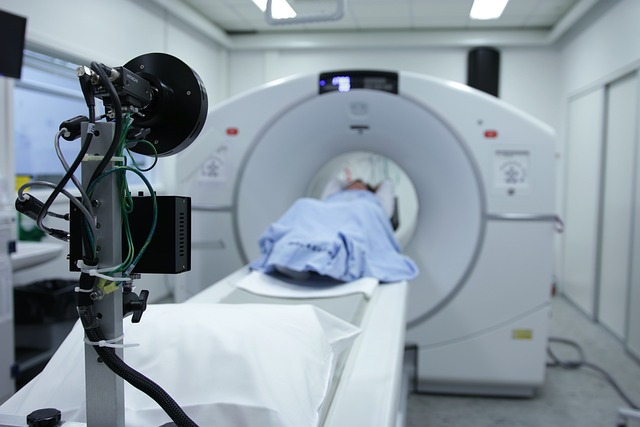Precision diagnostics, now integral to modern hospitals and clinics, are revolutionizing healthcare by delivering personalized treatments based on individual patient biochemistry and genetics. This approach not only optimizes treatment effectiveness but also anticipates complications, promoting efficient recovery and enabling faster discharge. The adoption of these advanced diagnostic technologies in healthcare settings faces challenges but holds the promise of significant improvements in patient outcomes, shorter hospital stays, and lower readmission rates. These diagnostics are also vital for feeding data into medical research, refining care protocols, and underscoring the importance of precision medicine. Hospitals like St. Mary's and clinics such as Dr. Linda Kim's have demonstrated the effectiveness of precision diagnostics through improved recovery rates, particularly in cases of complex genetic conditions and hormonal imbalances. The integration of sophisticated imaging, laboratory equipment, artificial intelligence, telemedicine, wearable devices, and electronic health records is evolving post-treatment care, offering a more tailored and effective approach to patient recovery in both hospital and clinic environments.
Precision diagnostics are revolutionizing post-treatment care in both hospitals and clinics, offering tailored recovery strategies that significantly enhance patient outcomes. This article delves into how advanced diagnostic technologies are transforming recovery programs, emphasizing their integration within healthcare settings to unlock personalized treatment potentials. We will explore the pivotal role of these innovations in refining patient care, supported by case studies illustrating their successful implementation across various clinical environments. Join us as we shed light on the future of diagnostic tools and their impact on effective recovery processes within the healthcare spectrum.
- Unlocking the Potential of Precision Diagnostics in Hospital Recovery Programs
- The Role of Advanced Diagnostics in Enhancing Clinic-Based Patient Care
- How Precision Medicine Paves the Way for Tailored Recovery Strategies in Hospitals and Clinics
- Integrating Cutting-Edge Technologies: The Future of Diagnostic Tools in Post-Treatment Care
- Case Studies: Successful Implementation of Precision Diagnostics in Various Clinical Settings
Unlocking the Potential of Precision Diagnostics in Hospital Recovery Programs

In modern healthcare settings, hospitals and clinics are increasingly leveraging precision diagnostics to enhance patient recovery outcomes. These advanced diagnostic tools enable healthcare providers to tailor treatment plans with pinpoint accuracy, reflecting each patient’s unique biochemical makeup and genetic profile. This personalized approach not only improves the efficacy of treatments but also reduces the risk of adverse reactions by identifying potential complications early on. As a result, patients in recovery benefit from more targeted therapies that are optimized for their specific conditions, accelerating their journey to wellness and facilitating faster discharge from hospital settings.
The integration of precision diagnostics in hospital recovery programs is not without its challenges, yet the potential benefits are substantial. Hospitals and clinics that adopt this cutting-edge technology can expect to see improved patient outcomes, shorter lengths of stay, and a reduction in readmission rates due to the precise nature of treatment plans informed by these diagnostics. Furthermore, the data collected from precision diagnostics contributes to a growing body of knowledge that refines medical understanding, leading to better care protocols for future patients. This cyclical process of data collection and application further solidifies the role of precision medicine in shaping the landscape of recovery programs within hospital and clinical environments.
The Role of Advanced Diagnostics in Enhancing Clinic-Based Patient Care

In modern healthcare settings such as hospitals and clinics, advanced diagnostics play a pivotal role in enhancing patient care. These sophisticated tools enable healthcare providers to accurately identify diseases and conditions earlier than ever before, leading to more effective treatment plans. The integration of cutting-edge diagnostic technologies within clinic environments allows for rapid and precise assessments of patient health, facilitating personalized care that is both efficient and tailored to individual needs. This not only improves patient outcomes but also streamlines the healthcare delivery process, reducing unnecessary tests and treatments while ensuring the most appropriate interventions are applied at the right time.
Furthermore, the application of advanced diagnostics in clinics extends beyond mere disease detection. These technologies empower medical professionals with detailed insights into a patient’s condition, allowing for a deeper understanding of the underlying mechanisms of their illness. This leads to more targeted therapies and treatment regimens that are optimized for each patient’s unique biological and physiological responses. Consequently, clinics equipped with advanced diagnostics can deliver superior care that is both proactive and responsive to the evolving needs of patients, contributing to a more robust healthcare system overall.
How Precision Medicine Paves the Way for Tailored Recovery Strategies in Hospitals and Clinics

In modern hospitals and clinics, precision medicine stands at the forefront of advancing patient care through tailored recovery strategies. By leveraging cutting-edge diagnostic techniques, healthcare providers can now analyze genetic makeup, environmental factors, and lifestyle choices that influence individual health outcomes. This personalized approach allows for the development of highly specific treatment plans, which are more effective than traditional, one-size-fits-all methods. The integration of precision medicine in clinical settings has led to improved patient prognoses, as treatments are optimized for the unique biological and physiological needs of each individual, thereby enhancing recovery processes within the hospital and clinic environments.
Furthermore, the adoption of precision diagnostics has facilitated a more predictive approach to healthcare. By accurately pinpointing the underlying causes of health issues, clinicians can intervene with targeted therapies that address the root of the problem, rather than merely managing symptoms. This targeted intervention not only accelerates the recovery process but also minimizes the risk of adverse reactions, reducing the length of hospital stays and the overall cost of care. As a result, hospitals and clinics equipped with precision medicine capabilities are better positioned to deliver high-quality, efficient patient care that promotes effective recovery.
Integrating Cutting-Edge Technologies: The Future of Diagnostic Tools in Post-Treatment Care

In the realm of post-treatment care, hospitals and clinics are increasingly leveraging cutting-edge technologies to facilitate effective recovery through precision diagnostics. These advancements enable healthcare providers to offer personalized treatment plans, tailored to individual patient needs. For instance, the integration of artificial intelligence (AI) in diagnostic tools allows for more accurate analysis of medical imaging, leading to faster and more precise diagnoses. This not only streamlines the process but also reduces the likelihood of misdiagnosis, which is crucial for patients transitioning from treatment to recovery phases. Moreover, biomarker testing has become a cornerstone in precision diagnostics, providing insights into a patient’s unique biological responses to treatments. By identifying these markers, clinicians can monitor the effectiveness of treatments with greater accuracy and adjust therapeutic regimens as necessary, ensuring better outcomes for patients.
The adoption of digital health technologies, such as telemedicine and wearable devices, further enhances the diagnostic process in post-treatment care settings. Patients recovering at home can be monitored remotely through these technologies, allowing healthcare professionals to track their progress continuously. This level of monitoring not only improves patient outcomes but also alleviates the burden on hospital and clinic resources. The integration of electronic health records (EHR) with these advanced diagnostic tools ensures that patient data is managed efficiently, providing a comprehensive view of the patient’s medical history and treatment progress. As hospitals and clinics embrace these technologies, they pave the way for a future where precision diagnostics becomes an integral part of post-treatment care, offering patients a more tailored and effective path to recovery.
Case Studies: Successful Implementation of Precision Diagnostics in Various Clinical Settings

At St. Mary’s Hospital, the integration of precision diagnostics marked a pivotal moment in patient care. By leveraging advanced genetic testing and personalized treatment protocols, the hospital significantly improved recovery rates for patients with complex conditions. A notable case involved a patient with a rare genetic disorder; through precise diagnostics, clinicians were able to pinpoint the exact genetic mutation responsible for the condition, leading to a targeted therapy that resulted in a remarkable improvement in the patient’s health. This success underscored the potential of precision medicine to revolutionize healthcare delivery within hospital settings.
In the clinic of Dr. Linda Kim, the adoption of precision diagnostics was instrumental in tailoring treatments to individual patient needs. Her practice, which specialized in endocrinology, saw a marked increase in treatment efficacy after implementing a comprehensive diagnostic approach that included detailed biomarker analysis and patient-specific genetic profiling. One such case involved a patient with an elusive hormonal imbalance; precise diagnostics revealed the underlying cause, allowing for a highly effective treatment plan to be developed. This outcome demonstrated the clinic’s commitment to delivering personalized healthcare, thereby enhancing patient satisfaction and outcomes.
Precision diagnostics represent a transformative advancement in healthcare, particularly within both hospital and clinic settings. As detailed throughout this article, these sophisticated tools enable more accurate assessments of patient conditions, leading to tailored recovery strategies that optimize outcomes. The integration of advanced diagnostic technologies not only enhances the quality of care but also heralds a new era in post-treatment care, ensuring that each patient’s unique needs are met with precision and effectiveness. The case studies presented underscore the tangible benefits of this approach, demonstrating its potential to revolutionize healthcare delivery across diverse clinical environments. As we continue to harness these technologies, it is clear that the future of recovery holds promise for even greater advancements in personalized medicine, further solidifying the crucial roles hospitals and clinics play in patient care.
